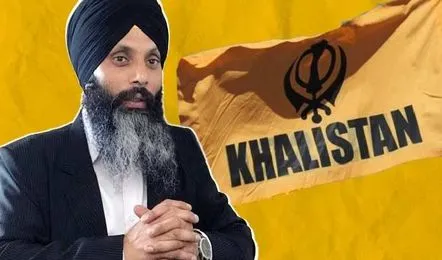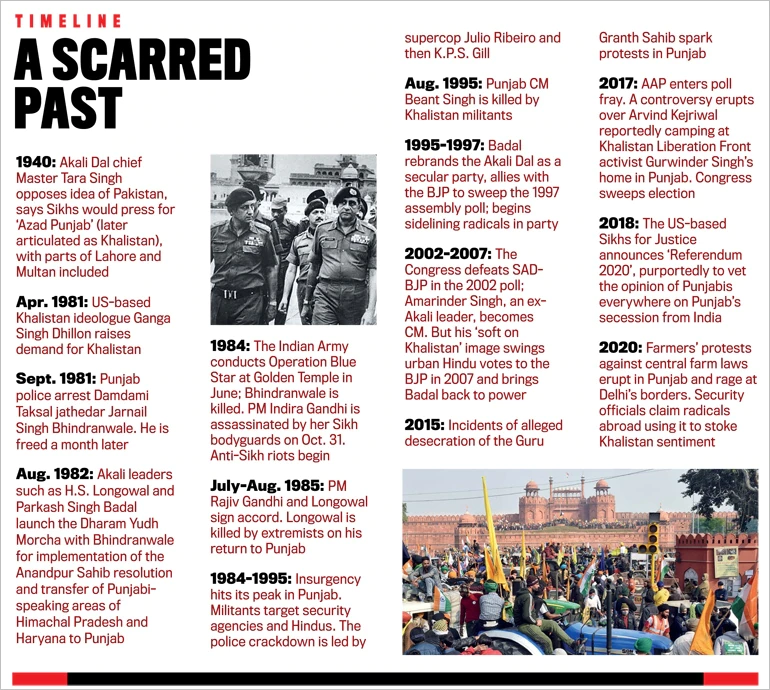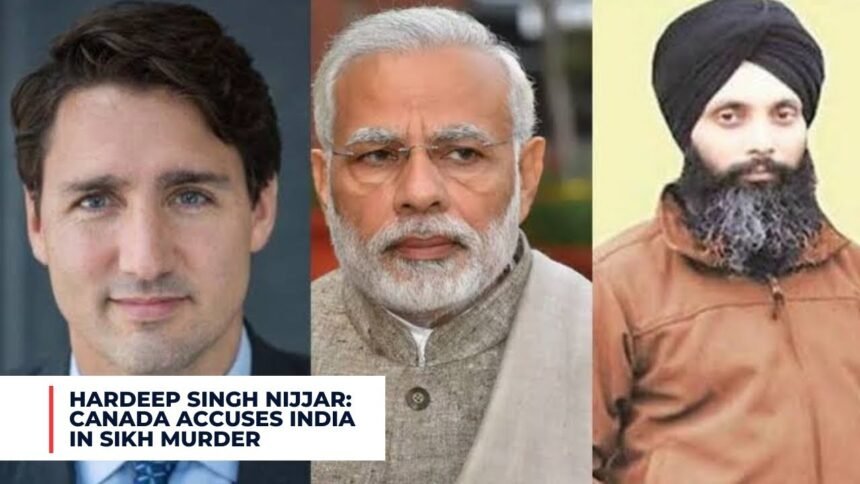A growing rift between the governments of India and Canada is centered on the death of Sikh independence activist Hardeep Singh Nijjar, who was assassinated in western Canada two months ago.
Sikh organizations referred to Hardeep Singh Nijjar, a supporter of Sikh independence whose death two months ago is at the center of a growing rift between India and Canada, as a human rights activist while the Indian government referred to him as a criminal.
Hardeep Singh Nijjar: India vs Canada

On September 18, Canadian Prime Minister Justin Trudeau announced that his administration was looking into “credible allegations” that Indian Government agents were involved in the shooting death of Hardeep Singh Nijjar on June 18 in Surrey, British Columbia, outside a Sikh cultural center. India has dismissed the accusations as ludicrous and denied any involvement in the murder.
In addition, he had a plumbing company and was the leader of a Sikh temple in suburban Vancouver, which had banners with his image on them endorsing the referendum on September 19. He responded dismissively to accusations in Indian media that he was thought to be the leader of a terrorist cell in a 2016 interview with the Vancouver Sun.
The charges are pure nonsense. I’ve lived here for 20 years, am I right? See my track record. Nothing is present. I work very hard. I have my own plumbing company, Hardeep Singh Nijjar told the publication. He claimed he was too busy at the time to engage in diaspora politics.
The World Sikh Organisation of Canada described Hardeep Singh Nijjar an outspoken advocate of Khalistan who “often led peaceful protests against the violation of human rights actively taking place in India and in support of Khalistan” after his passing.
Since Sikh separatists in other countries have long been considered a security danger, Hardeep Singh Nijjar was wanted in India.
Hardeep Singh Nijjar was said to have planned a blast in the Punjab state, which has a large Sikh population, and trained militants in a tiny town southeast of Vancouver, according to Indian media reports from 2016. He refuted the charges.
In 2020, Indian officials alleged Hardeep Singh Nijjar belonged to a militant organization that was outlawed and labeled him a terrorist. They also brought a criminal case against him during that same year, when Punjabi farmers set up camp outside of New Delhi to protest contentious agricultural policies. The Indian government filed several such cases against Sikh activists both domestically and abroad in an effort to link the protests to Sikh separatists in an effort to discredit them.
Hardeep Singh Nijjar was allegedly involved in an attack on a Hindu priest in India last year, and Indian police have offered a reward of around $16,000 for information that may result in his capture.
Khalistan movement: Terrorism and Extremism

ALSO READ: Relationship Tension Between India And Canada: Will It Hinder Trade?
The contemporary Sikh independence movement dates back to the 1940s, but it finally developed into an armed rebellion that rocked the nation in the 1970s and 1980s. Then-Prime Minister Indira Gandhi commanded a raid in 1984 to apprehend armed separatists hiding out in the holiest shrine of Sikhism.
Numerous people were slain during the attack, and Gandhi was shortly after murdered by two of her Sikh bodyguards. In reaction, anti-Sikh riots spread throughout India, where members of the minority were killed after being forcibly removed from their homes. Thousands of people were slain during the crackdown that eventually put an end to the insurgency, although some people in northern India and the Sikh diaspora still embrace the idea of Sikh independence.
Prime Minister Narendra Modi’s Hindu nationalist administration has recently cracked down on both non-Hindu rights organizations and dissidents.
Activism by the Sikh diaspora has long been a cause of conflict between India and Canada. The majority of Sikhs outside of India live in Canada, and India has frequently accused Canada of supporting “terrorists and extremists.”
According to Canadian authorities, Hardeep Singh Nijjar was shot as he was exiting the parking lot of the Sikh temple in British Columbia where he was president. He was shot numerous times and passed away right there.
Following the murder, Gurpatwant Singh Pannun, an attorney and representative for Sikhs For Justice, claimed that Nijjar had received threats as a result of his activity. He was the second prominent Sikh community leader in Canada to be assassinated in the last two years.
The day before he was assassinated, Mr. Pannun claimed to have spoken on the phone with Nijjar, and Hardeep Singh Nijjar had revealed to him that Canadian intelligence had forewarned him that his life was in danger.
About 200 Sikh protesters from Canada gathered in front of the Indian Consulate in Vancouver to show their support for Hardeep Singh Nijjar nearly a week after his murder. Numerous demonstrators believed that Nijjar’s murder was related to his requests for an independent Sikh state.
He was a compassionate, hard-working, and family-oriented man, according to one of the demonstrators, Gurkeerat Singh.
On September 18, Moninder Singh, a representative for the British Columbia Sikh Gurdwara Council, told CTV in Canada that the outpouring of sympathy for Hardeep Singh Nijjar following his passing was a sign of how he was regarded in the neighborhood.
The entire globe, including Punjab, was shaken, according to Mr. Singh. “The neighborhood is destroyed. Days after the murder, Sukh Dhaliwal, a member of parliament for Surrey, remarked, “There are very, very strong emotions.
ALSO READ: Anti-Terror Agency Discloses Information On Gang Members With Canadian Connections




































